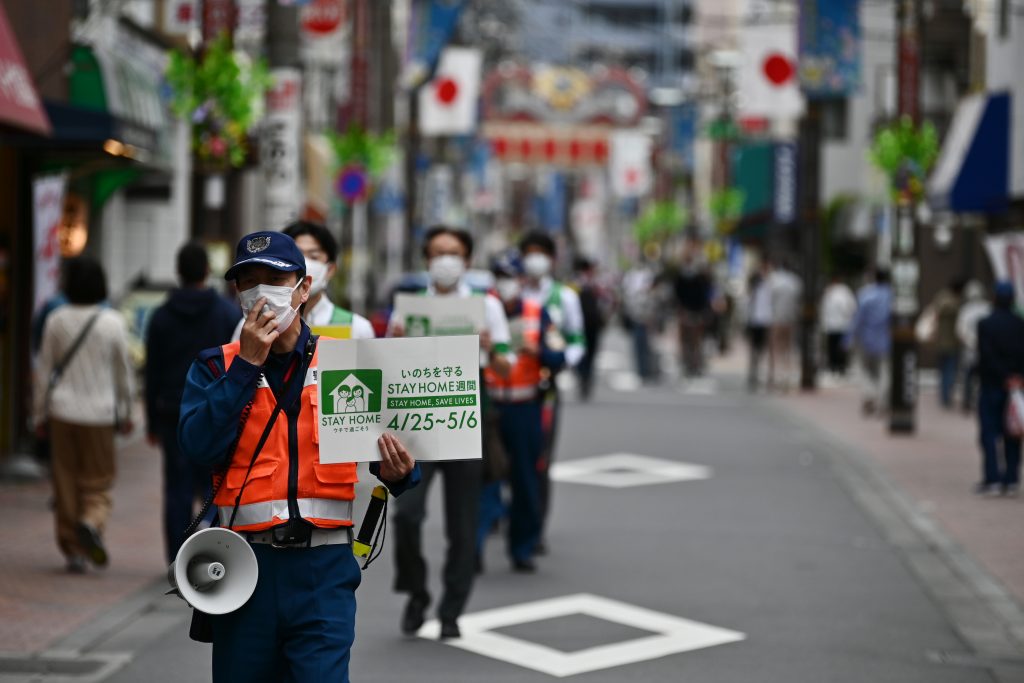
- ARAB NEWS
- 31 Jul 2025

The Japanese government on Thursday earned certain scores from a private think tank for a series of measures it has taken in response to the novel coronavirus pandemic.
The government failed to respond proactively, but its coronavirus measures worked out to a certain degree, a survey team of experts set up by the Asia Pacific Initiative said in a report, while citing a delay in border control measures and problems in other steps.
The survey covered the period from January to around mid-July. The team interviewed a total of 83 people, including then Prime Minister Shinzo Abe, then Chief Cabinet Secretary Yoshihide Suga, who took over Abe as prime minister in September, other senior government officials and infectious disease experts such as Shigeru Omi, head of the Japan Community Health Care Organization.
Introducing an analysis that the novel coronavirus entered Japan partly through Japanese people who traveled to Europe, where the virus spread rapidly, the report said that Japan “could have brought under control the expansion of infection in and after April” if the powerful border control measures against European countries that were put into place in March and later had been implemented “a little earlier.”
The report mentioned a hugely unpopular program of distributing two cloth face masks to all households in Japan. Quoting an official at the prime minister’s office as saying that some at the office rushed over the program and that it “fell flat,” the report said, “The strategy to highlight the top-down decision backfired, depriving the (Abe) administration of its strength.”
The protective gear was mockingly called Abenomask, a pun on Abenomics, the economic policy mix of Abe.
The report said that the health ministry, which was expected to lead the government’s efforts to contain the virus crisis, had not been fully prepared for a pandemic. This was “the biggest issue,” it said.
Regarding the mass infections that occurred on the Diamond Princess cruise ship, which was quarantined off Yokohama, eastern Japan, the report revealed that then health minister Katsunobu Kato, now chief cabinet secretary, told Suga, who was then in the post of the top government spokesman, that the task of handling the outbreak on the ship was “too heavy a burden” for the ministry.
Meanwhile, Abe said in the hearing by the survey team of the think tank that declaring a state of emergency was “the toughest decision” in his administration’s fight against the virus, noting that there was much controversy over the matter within the government.
The report suggested that tensions were growing at the time between government officials who were supporting the idea of declaring the emergency and those who were not.
Specifically, it said that Suga was the main figure among officials who were cautious while economic revitalization minister Yasutoshi Nishimura was pushing the idea on the back of experts’ views in favor of the measure.
Abe declared the state of emergency on April 7 for Tokyo and six other prefectures where infections were surging and expanded it to all 40 other prefectures of the country on April 16. The state of emergency was lifted in stages in May.
As future measures against infectious diseases, the survey team proposed the establishment of a reserve system in which former doctors, nurses and health nurses will be mobilized to support medical institutions in times of health emergencies.
The team also urged the government to digitalize administrative procedures thoroughly and promptly, noting that a delay in such digitalization impeded the work to speedily figure out the situation over the novel coronavirus crisis.
Mitsubishi Chemical Holdings Corp. Chairman Yoshimitsu Kobayashi, head of the survey team, and Yoichi Funabashi, chairman of the Asia Pacific Initiative and former editor-in-chief of the major Japanese daily Asahi Shimbun, submitted the report to Suga at a meeting at the prime minister’s office on Thursday.
The prime minister sounded positive about the proposals from the team.
JIJI Press